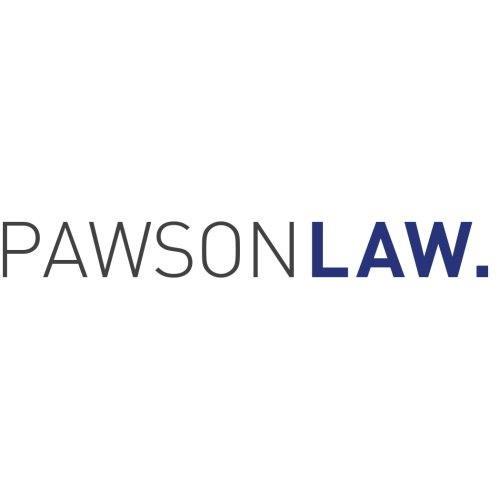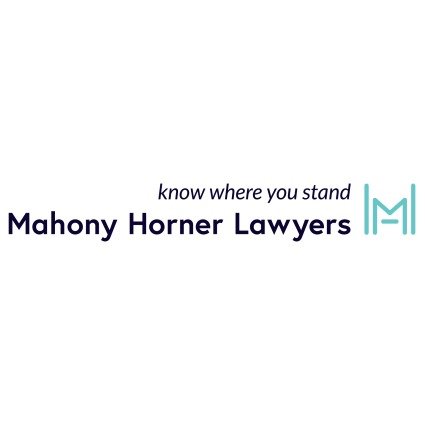Best Labor Law Lawyers in New Zealand
Share your needs with us, get contacted by law firms.
Free. Takes 2 min.
Or refine your search by selecting a city:
List of the best lawyers in New Zealand
About Labor Law in New Zealand
Labor law in New Zealand is designed to ensure fair treatment of workers by setting out the rights and responsibilities of both employers and employees. The law covers all aspects of employment, such as wages, working hours, and protection from unfair dismissal. Key legislation includes the Employment Relations Act 2000, the Health and Safety at Work Act 2015, and the Holidays Act 2003, which enforce standards and provide mechanisms for resolving disputes in the workplace.
Why You May Need a Lawyer
There are several situations where individuals may require legal assistance in the field of labor law. These include disputes over unfair dismissal, discrimination or harassment in the workplace, breaches of employment contracts, or disagreements regarding wages or working conditions. Expert legal advice can help navigate these complex issues, protect your rights, and help resolve conflicts either through negotiation or litigation.
Local Laws Overview
Labor laws in New Zealand emphasize the importance of fair and safe working conditions. Key aspects include:
- Employment Contracts: All employees must have a written employment contract that outlines the terms of employment.
- Minimum Rights: These include minimum wage, paid holidays, and parental leave entitlements.
- Health and Safety: Employers are required to provide a safe working environment and mitigate any risks to employee well-being.
- Anti-Discrimination: Laws prohibit workplace discrimination based on personal characteristics such as age, gender, or ethnicity.
- Employment Dispute Resolution: The Employment Relations Authority and the Employment Court handle disputes and grievances between employees and employers.
Frequently Asked Questions
What is the legal minimum wage in New Zealand?
The legal minimum wage is reviewed and adjusted annually by the government. Ensure to check the current rate with official government sources.
What are my rights if I am unfairly dismissed?
If you believe you were unfairly dismissed, you may take your case to the Employment Relations Authority for resolution. It's advisable to seek legal help to understand your rights and strengthen your case.
How can I address workplace harassment or bullying?
New Zealand law requires employers to prevent and address bullying and harassment. Victims can lodge a complaint internally or externally, and seeking legal advice can help guide the process.
What parental leave am I entitled to?
The Parental Leave and Employment Protection Act outlines the entitlements for parental leave, which includes both paid and unpaid leave. Entitlements depend on your situation and employment history.
How many holidays am I entitled to each year?
Employees in New Zealand are entitled to a minimum of four weeks of paid annual leave after 12 months of continuous service with the same employer, in addition to public holidays.
What should be included in my employment contract?
Your employment contract should cover essential aspects like job description, wages, working hours, leave entitlements, and dispute resolution procedures.
What can I do if my employer breaches the employment contract?
You may opt for mediation or take your case to the Employment Relations Authority. Legal advice can help assess the validity of your claims and develop a course of action.
Are part-time workers entitled to the same rights as full-time workers?
Yes, part-time workers are entitled to the same rights as full-time workers, with entitlements like holiday pay calculated on a pro-rata basis.
Who is responsible for health and safety at work?
Under the Health and Safety at Work Act, both employers and employees share responsibility for maintaining a safe workplace.
How does the employment dispute resolution process work?
Disputes typically start with internal resolution efforts, followed by mediation through the Ministry of Business, Innovation, and Employment. If unresolved, the Employment Relations Authority or Employment Court may intervene.
Additional Resources
For further guidance, consider reaching out to the following organizations:
- The Ministry of Business, Innovation, and Employment (MBIE) for information on workplace rights and responsibilities.
- The Employment Relations Authority for dispute resolution services.
- WorkSafe New Zealand for workplace health and safety resources.
Next Steps
If you need legal assistance in labor law, consider the following steps:
- Consultation: Arrange a consultation with a qualified employment lawyer to discuss your situation and explore your legal options.
- Documentation: Gather all relevant documents, such as employment contracts, correspondence, and evidence of any disputes or breaches.
- Representation: Choose a lawyer to represent you and guide you through any legal proceedings or negotiations needed to resolve your issue.
Lawzana helps you find the best lawyers and law firms in New Zealand through a curated and pre-screened list of qualified legal professionals. Our platform offers rankings and detailed profiles of attorneys and law firms, allowing you to compare based on practice areas, including Labor Law, experience, and client feedback.
Each profile includes a description of the firm's areas of practice, client reviews, team members and partners, year of establishment, spoken languages, office locations, contact information, social media presence, and any published articles or resources. Most firms on our platform speak English and are experienced in both local and international legal matters.
Get a quote from top-rated law firms in New Zealand — quickly, securely, and without unnecessary hassle.
Disclaimer:
The information provided on this page is for general informational purposes only and does not constitute legal advice. While we strive to ensure the accuracy and relevance of the content, legal information may change over time, and interpretations of the law can vary. You should always consult with a qualified legal professional for advice specific to your situation.
We disclaim all liability for actions taken or not taken based on the content of this page. If you believe any information is incorrect or outdated, please contact us, and we will review and update it where appropriate.
Browse labor law law firms by city in New Zealand
Refine your search by selecting a city.















